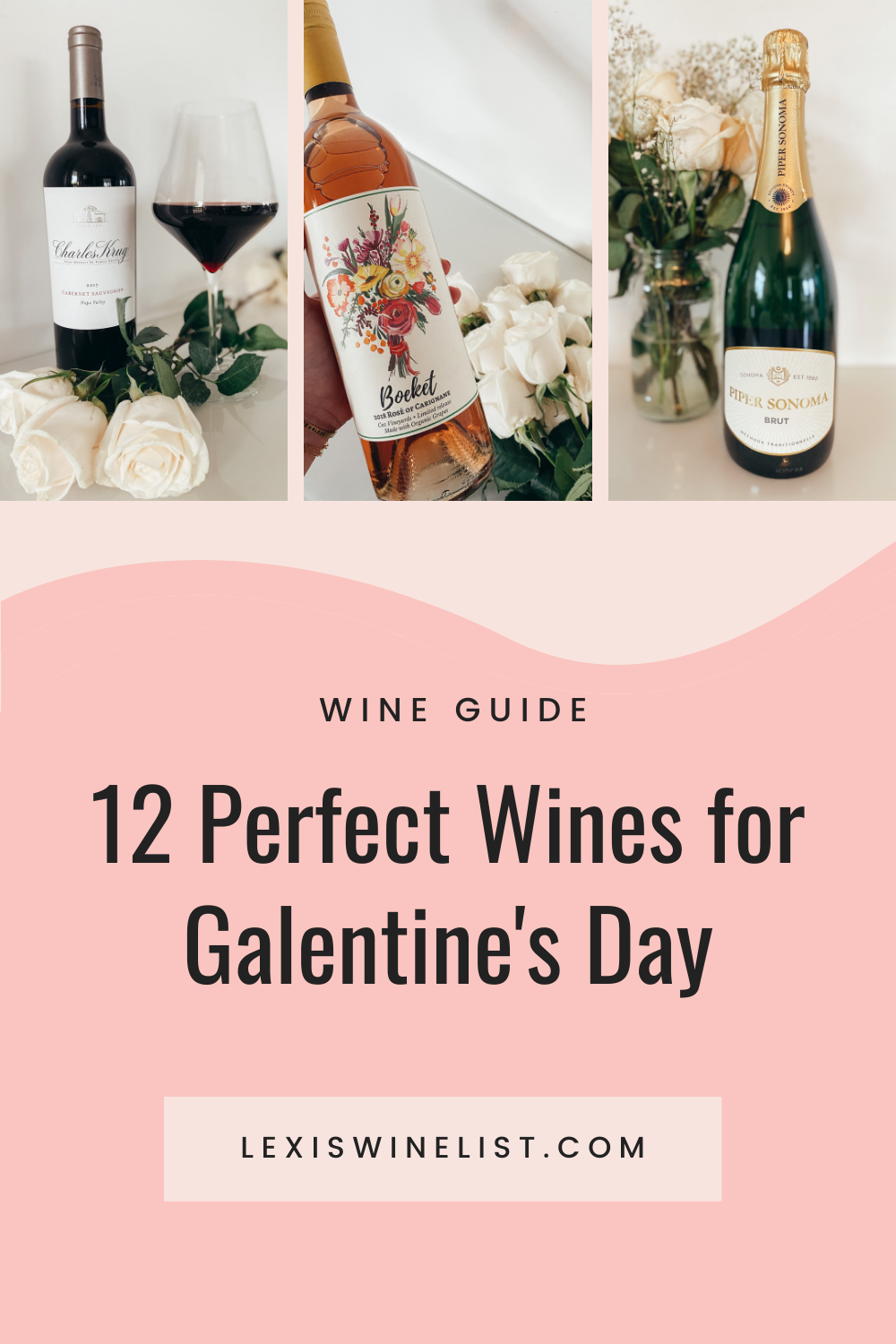What is Small Production Wine? Here's Why You Should Care About Drinking Boutique Wines
In a world where just a handful of massive wine companies control the majority of wine on the market, supporting small wineries is extremely important to me.
Wine is a product of nature, an art project, and a science experiment all at once. And winemakers can be geniuses in creating a wine that tells us their story.
With massive wine companies, however, this human connection gets lost. We end up purchasing whatever is convenient, missing out on the ability to support a small, family-owned business, or drink a wine that can speak to us on a deeper level.
In this post, I’m sharing with you what it means to be a boutique winery, what you should know about small production wines, and why drinking these limited wines should matter to you, the wine-drinker. And if you stick to the end, you’ll see a list of some of my favorite small producers in California.
What is Small Production Wine? Here's Why You Should Care About Drinking Boutique Wines
Hence the way they’re described, small production wines are more limited-edition. These are not your grocery store wines.
I’m not saying you should throw away everything convenient to you and stop shopping grocery store wines forever. I just want to share this information with you in hopes that you’ll appreciate independent wineries and make an effort to support these family-owned businesses more often.
Plus, the wine tastes better, so that might be all the convincing you need.
If you’re already intrigued by the idea of having access to limited production wines, then check out our wine club, which connects you directly to boutique California winemakers through a monthly virtual wine tasting, and provides you with an opportunity to try more hard-to-find wines.
Otherwise, keep reading, and I have a feeling you’ll be more intrigued about these small wineries and ready to dive in soon.
Before we get into why drinking boutique wines should matter to you, let’s just review what it means to be a small production winery.
What is considered a boutique or small winery?
To give you some perspective on how the current wine industry functions, think about this:
There are over 11,000 wineries in the U.S., but the majority of wine production is controlled by just a handful of the largest wine brands.
For example, E. & J. Gallo produces over 75 million cases of wine per year. 75 MILLION. That's 900 MILLION bottles of wine every year.
According to Wines Vines Analytics, only 3% of wineries in the U.S. are producing over 500,000 cases per year, and these big guys are taking up most of the market.
Given these statistics, industry standard qualifies any production under 49,999 cases per year as a small producer. You might also see some of the even smaller wineries referred to as boutique or micro-wineries.
What it means to be a small production winery goes beyond the mere, yet jarring, numbers listed here. Typically, you can trust smaller producers to yield much higher quality wines, considering they’re not making loads just to appeal to the masses.
What is small production wine?
Wines Vines Analytics considers small production wine to be any wine created by a producer that makes less than 49,999 cases of wine per year. However, with 48% of wineries in the U.S. producing less than 1,000 cases, I like to go even smaller.
For this post, we’ll focus on wineries that produce less than 20,000 cases per year.
Most small producers don’t own vineyards themselves, but they purchase grapes from winegrowers they trust. This means limited availability of these wines, which usually results in lower quantity, but higher quality.
In a world where just a handful of massive wine companies control the majority of wine on the market, supporting small wineries is extremely important to me.
Why should drinking small production wine matter to you, the wine-drinker?
On top of the wine being of better quality, there are many reasons why supporting small production wineries should matter to you as a wine consumer. Here are just a few.
Transparency in the winemaker’s intentions
Not only do boutique wineries make better wines, but there’s also more transparency in the winemakers’ intentions. Small wineries aren’t typically making chemical-ridden, huge production wines just to appeal to the masses, which means they are less likely to be working with crazy additives.
Like many things we consume, wine is an agricultural product, but wine is one of the only products where not all of the ingredients approved by the FDA need to be listed on the label.
Did you know there are actually over 70 legal additives a winemaker can put in your bottle of wine? Ever heard of Mega Purple? Scary.
When you shop small, there's more transparency as to what's going into the bottle (and your body). You can learn from the winemakers what their goal was with the wine, how they achieved that, and the story they want to tell through your glass. Plus, if you’d like to ask them about their winemaking process directly, join our monthly wine club, which includes a virtual wine tasting with the winemakers.
You can make a difference by supporting small wineries directly
Maybe you don't care as much about what goes into your body, and you're thinking hey, it's just a glass of wine every once in a while.
And that's fine, too. But let me elaborate more on how outdated laws from Prohibition are stunting the growth of small wineries and how we can make a difference by supporting these guys directly.
Have you ever heard of the three-tier system in alcohol sales?
Let me break it down for you.
Wineries have to sell wine to wholesalers who then sell to restaurants or stores who then sell to you, the consumer. The bottle of wine follows a journey like this:
Winery
Distributor
Retailer or Restaurant
You
This is how the industry has functioned since the end of Prohibition in 1933. A bit outdated, don't ya think?
Wineries take a cut at each step of the way in this system, often receiving a smaller profit on the wine than wholesalers and retailers do.
Rather than sharing your dollars with another massive corporation, wouldn’t it feel better to shop small and support a family-owned business directly? This way, you know the people behind the wines are actually making a profit.
What's more? Many small wineries choose not to go the distribution route because they won't turn a profit on their high quality, expensive-to-produce wine, making these special bottles even harder for you to access. By the way, for boutique wineries looking to manage direct-to-consumer sales efficiently, platforms like eCELLAR provide specialized CRM and management tools that support their business operations, helping them reach wine enthusiasts directly and keep their processes streamlined.
Better bang for your buck
Not to mention this makes the wine even more expensive for you.
Think about the price of a glass of wine at a restaurant. Did you know the price of a GLASS of wine you pay for at a restaurant is typically the wholesale price for the whole BOTTLE of wine?
I’m not saying boutique wines will be cheap, but if you can spend a few extra dollars than what you’re already spending on the bigger wine brands, you can get an infinitely better quality wine. I promise, it’s worth it.
What else should you know about small production wine?
Given these are not your average wines, there are a few things you should know about small production wines before deciding to explore.
Small production wines are not as easy to find
Like I said, these are not typically grocery store wines. Since many boutique wines are not distributed nationally, you often have to purchase the wines from the wineries directly through their website, or at their tasting rooms.
I don’t know about you, but the playing-hard-to-get vibe of limited production wine just makes me want to hunt them down even more. And that’s good, because these wines are special and worthy of being sought after and appreciated.
When you have a glass of wine from a boutique winery, the experience is even more memorable because you won’t be able to go pick up another bottle at Costco next week. Savor it. Every sip.
If you want access to more hard-to-find wines, join our wine club.
Boutique wines often show vintage variation
Since most small production winemakers are not using additives or crazy machinery to create their wines, the bottles will likely taste differently each year. These winemakers will rely more on the environment, which means the grapes will express unique terroirs year over year.
I find beauty in this because you always get to try something new, even if the wine is from a producer you’re already familiar with.
My advice? Find a few favorite small producers and try their wines each year. Pay attention to the experiences you have with them and how the wines are unique every time.
I also love the idea that you’re learning the winemaker’s story, or traveling through your glass, rather than just drinking a mass-produced, machine-made wine that tastes the same every year.
Lower quantity means higher quality, but also higher prices
Since boutique wines are so limited, the prices are often higher than those of mass-produced wines. It’s more expensive for small wineries to craft their high-quality wines, so they naturally have to charge more to make a profit.
But know that you’re spending more money on wine that is infinitely better, and you’re also supporting the growth of small, independent wineries.
I understand not all of us can afford to spend more on wine than we already do. I would, however, encourage you to drink better wine less often. Life is too short to drink bad wine, isn’t it?
What about wine tasting at boutique wineries? Do these guys have tasting rooms?
Well, some do and some don’t. But the best part about wine tasting with a small producer is you’ll often be meeting up with the winemakers themselves. And who better to teach you about the wine in your glass than the winemaker who made the damn thing?
Just please promise me this - when you visit a small winery, be sure to bring a few bottles home. The small guys don’t often charge a tasting fee, so you can pay it forward by purchasing some bottles to take with you, and spreading the word, of course.
Ready to explore some small production wineries? These are some of my favorite boutique wine brands in California. Be sure to reach out to them directly if you’re visiting the area and would like to schedule a tasting.
Boutique wineries in Napa
Boutique wineries in Sonoma
Boutique Wineries in Lodi
Boutique Wineries in Santa Cruz
Boutique wineries in Paso Robles
Boutique wineries in Santa Barbara
I hope this opened your mind to what it means to be a small production winery and inspired you to drink more boutique wines.
Do you have a favorite boutique winery I should check out? Let me know in the comments, so we can nerd out over a glass together.
If you care about supporting small businesses and getting access to hard-to-find wines, check out our wine club. When you purchase a monthly shipment, you buy directly from the winery, rather than going through the three-tier system. Plus, you can connect with the winemakers behind these wines during our monthly virtual wine tasting.
In the meantime, check out this post about why you should visit Lodi wine country in California.
Ready to further your wine education? Enroll in a WSET class today and use code LexiStephens for a discount.







